Can Trump really cut off his business ties?
- Published
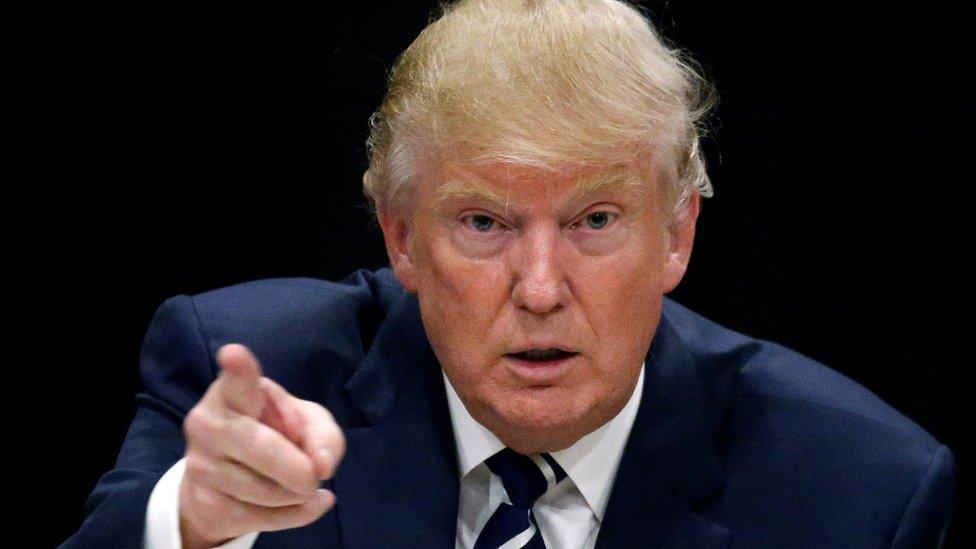
News conferences are rare events for President-elect Donald Trump.
Since he beat Hillary Clinton, his media appearances have been restricted to television interviews and the occasional audiences with an important outlet such as the New York Times.
Now his plans to hold one on Thursday to tackle a thorny subject - how he will square his new office with his old career - have been postponed.
Mr Trump's spokesman said the announcement will now be in January.
"With so many iconic properties and successful entities, moving the announcement to January ensures the legal team has ample time to ensure the proper protocols are put in place so his sole focus will remain on the country and achieving his ambitious agenda with the help of the world-class cabinet he has built," Mr Trump's transition team spokesman Sean Spicer said via email.

Mr Trump has indicated that his children will run his businesses while he's president - possibly with the additional screen of their ownership being placed into a "blind" trust that will prevent him from directly benefiting while he holds office.
While Mr Trump is likely to portray this as removing him from any potential conflicts of interest, it is some way removed from what has been considered the gold standard for presidents for the last 40 years.
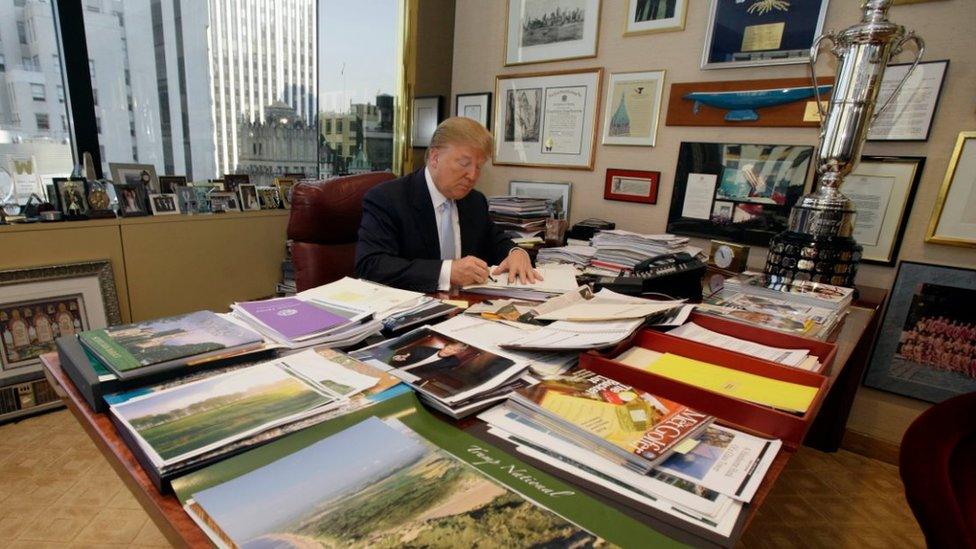
Donald Trump has announced he will be leaving his business "in total"
Some presidents have chosen to sell everything, put the money into a blind trust, and then have it invested without their knowing how the cash has been put to work.
It is a system that removes any notion that the president can act improperly.
Norman Eisen, a former legal adviser to the Obama administration on ethics who is now with the Brookings Institution think tank, says Mr Trump's plan falls short of what is required.
"I don't accept that it's sufficient for Mr Trump to step away simply from - as he put it in a tweet the other day, external - the operations of his businesses.
"By doing that he will still hold on to the financial interests and as long as he's financially benefiting it will create at a minimum the appearance that his decisions are influenced by his pocket book.
"In fact I think it will often go beyond mere appearances to a situation where he's presented with an actual conflict," Mr Eisen says.
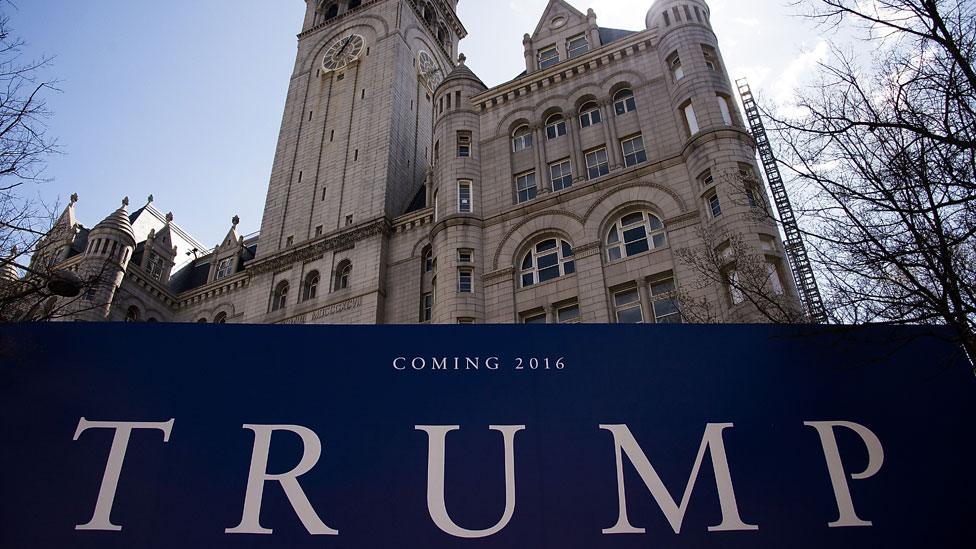
Mr Trump uses local partners who pay for the privilege of being able to use a famous name on their buildings
Circumstances add extra potential conflicts to the Trump administration. His business empire now relies on licensing the Trump name to developers around the world.
Our graphic shows the wide spread of his empire, but he owns only a few of the properties that carry his name - the Scottish golf courses being one of the few ventures in which Mr Trump has personally invested.
Otherwise, he uses local partners, who pay for the privilege of being able to use a famous name on their hotel or office building.
Tim O'Brien, the senior Bloomberg journalist who earlier in his career wrote Trump Nation, a Trump biography that ended in a lawsuit won by the author, says Mr Trump finds it hard to pass up a licensing opportunity.
"He loves deals. He loves making short-term hits. He's often tried to jump into almost any deal that crosses his desk. He's very undisciplined about it.
"I think he has no intention of forsaking the myriad opportunities that are going to roll into the Oval Office as he sits there."
Mr O'Brien believes Mr Trump will try to take advantage of those opportunities as he "lacks that kind of discipline".
Pippa Malgrem, a US analyst who served as a White House adviser, says the licensing model gives an overarching conflict.
She says anything that makes the Trump name more valuable - association with the presidency, for example - will still do so, regardless of whether Mr Trump is involved with day-to-day management or not.
She points out, however, that the Democrats have little to teach Mr Trump.
"This was exactly the allegation that has been levelled at the Clinton Foundation - that, during the period that the secretary of state was in office, companies and nations knew if they gave capital to the Clinton Foundation that it would somehow result in influence," says Ms Malgrem.
- Published13 December 2016
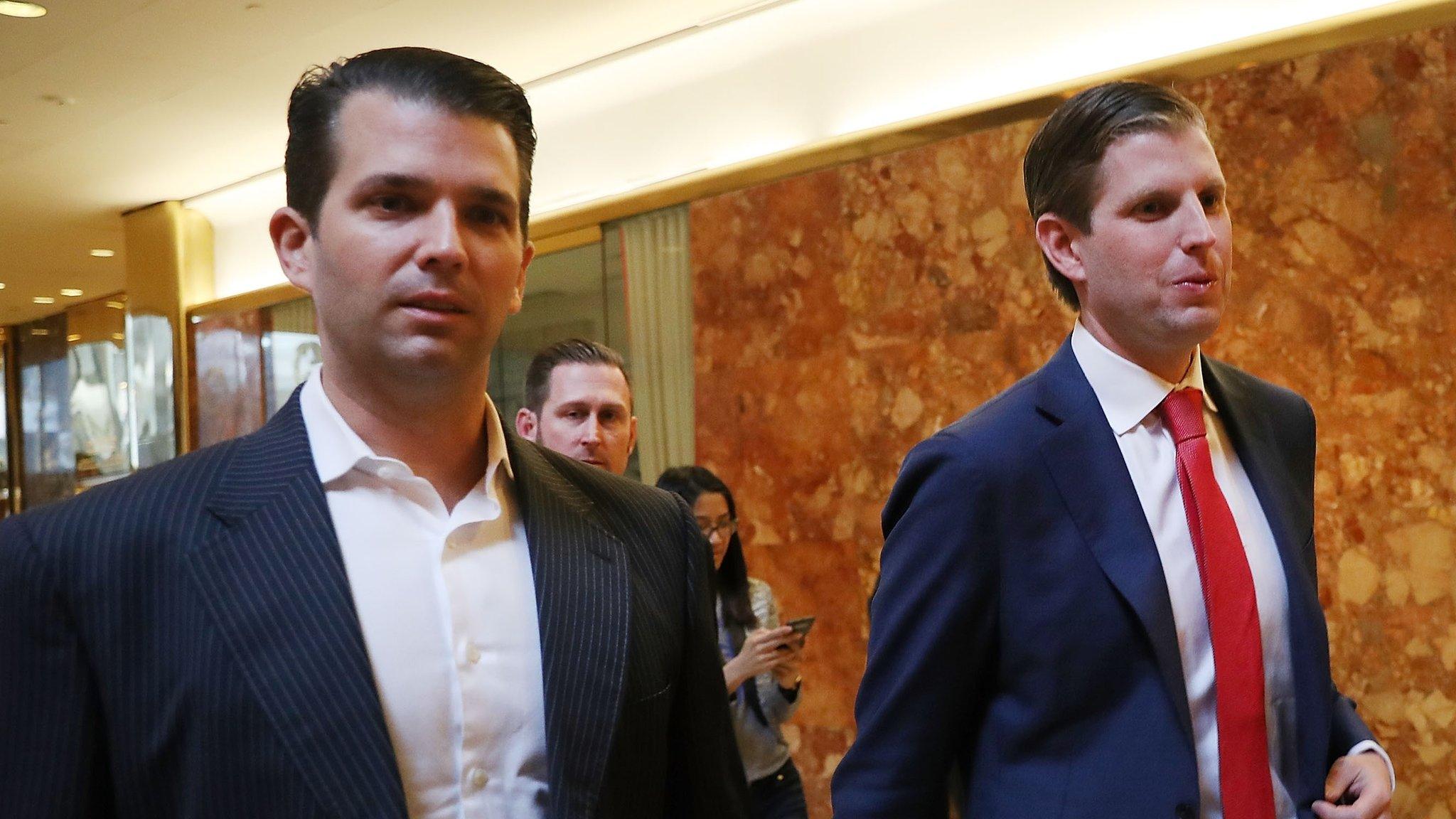
- Published30 November 2016
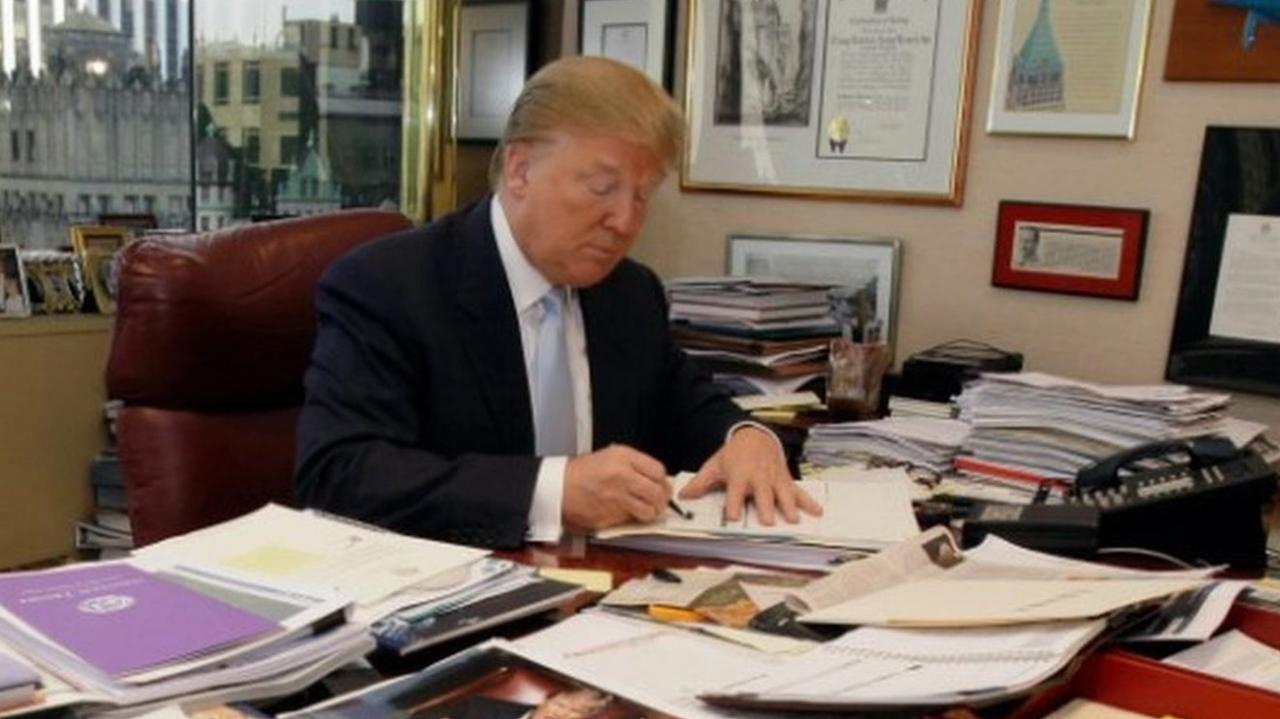
- Published18 April 2017
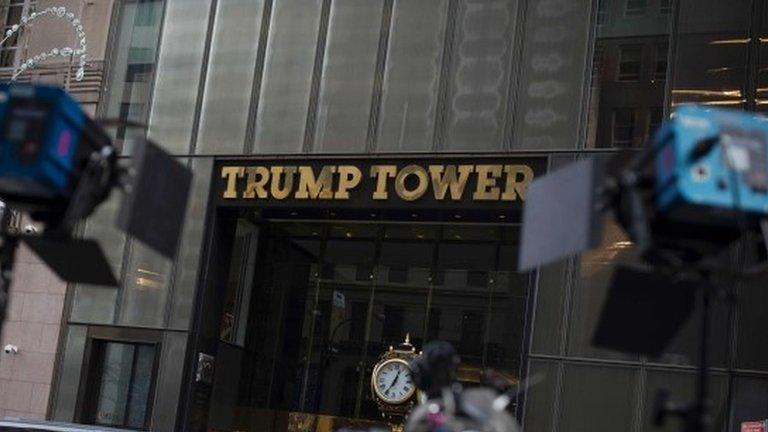
- Published30 November 2016
